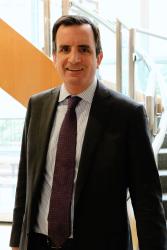

9:00 am EST - 10:15 am EST
Past Event
On Monday, February 8, the Center on the United States and Europe (CUSE) at Brookings convened a webinar to discuss strategies to strengthen the multilateral order in an age of nationalism. The conversation, moderated by Senior Fellow Bruce Jones, featured Finnish Undersecretary of State for Foreign and Security Policy Kai Sauer, Senior Fellow Constanze Stelzenmüller, and CUSE Director Thomas Wright, author of the recently released policy brief, “Advancing multilateralism in a populist age.”
Wright opened the conversation by noting that while the Biden administration has ushered in a new wave of optimism for multilateralism, serious challenges continue to plague the multilateral order. This is illustrated by two recent examples. The first is the failure of China to cooperate with the international community on COVID-19, despite putting in place reforms after SARS. The second is Donald Trump’s relatively strong showing in the US election; he lost but Trumpism is likely to remain a force in American politics, raising long term questions about the U.S. commitment to the international order it leads.
Citing his policy brief, Wright outlined three strategic approaches available to multilateralists seeking to deepen international cooperation: 1) incrementalism, the most traditional approach, focuses on identifying shared objectives and slowly introducing all nations into the international order; 2) “alone in the jungle,” an approach that separates the European Union (EU) from the United States, leaving the U.S., Russia, and China as co-equal powers; and 3) “reinvigorating the free world,” the method employed in the late 1940s wherein like-minded countries promoted a positive agenda throughout the international system.
According to Sauer, the European Union was relieved when President Joe Biden repeated that “America is back” in his recent address at the State Department. To reconstruct American diplomatic legitimacy, Sauer suggested three steps. Firstly, he argued, the United States should build back trust with its allies and partners. Secondly, it must “signal clarity and consistency” in U.S. foreign policy. And finally, the United States must “restore global leadership.”
Stelzenmüller, for her part, argued that securing credible multilateralism requires the European Union to first internally agree on its approach toward illiberal powers like Russia and China. She highlighted two recent examples of the EU’s inconsistency vis-à-vis authoritarian regimes: the German-Russian Nord Stream 2 gas pipeline project, and EU High Representative Josep Borrell’s recent visit to Moscow. Ultimately, Stelzenmüller insisted that in order to gain credibility abroad, the European Union needs to address rule of law issues within the bloc.
Regarding cooperation in the short term, Wright and Stelzenmüller agreed that creating a unified agenda on climate, technology, and solidarity between liberal nations under pressure from illiberal countries will be crucial to strengthening the multilateral order. In closing, Wright stressed that most of the current “domains of competition,” including Russia and China, naturally fall under the jurisdiction of the European Union — not NATO — and that the United States must invest further in its relationship with the EU accordingly. Above all, multilateral relations should aim higher than discussion and consultation — they must be outcome-focused.
Moderator
Panelist



Landry Signé
February 20, 2026

Eswar Prasad
February 3, 2026
2026
The Brookings Institution, Washington D.C.
Wednesday, 10:00 am - 11:30 am EST